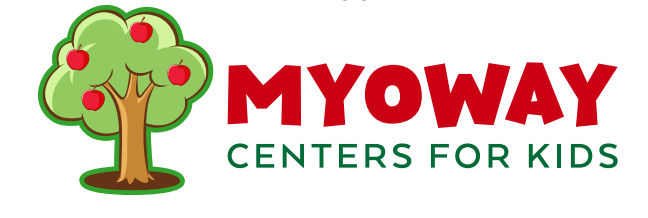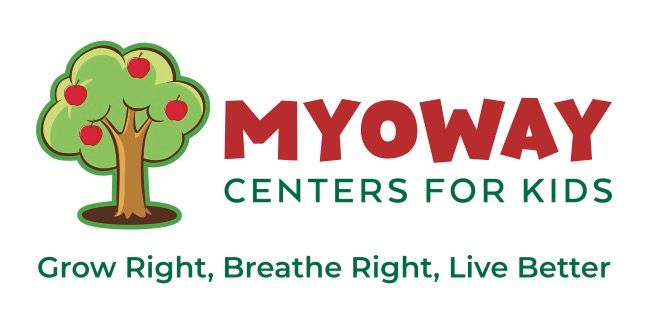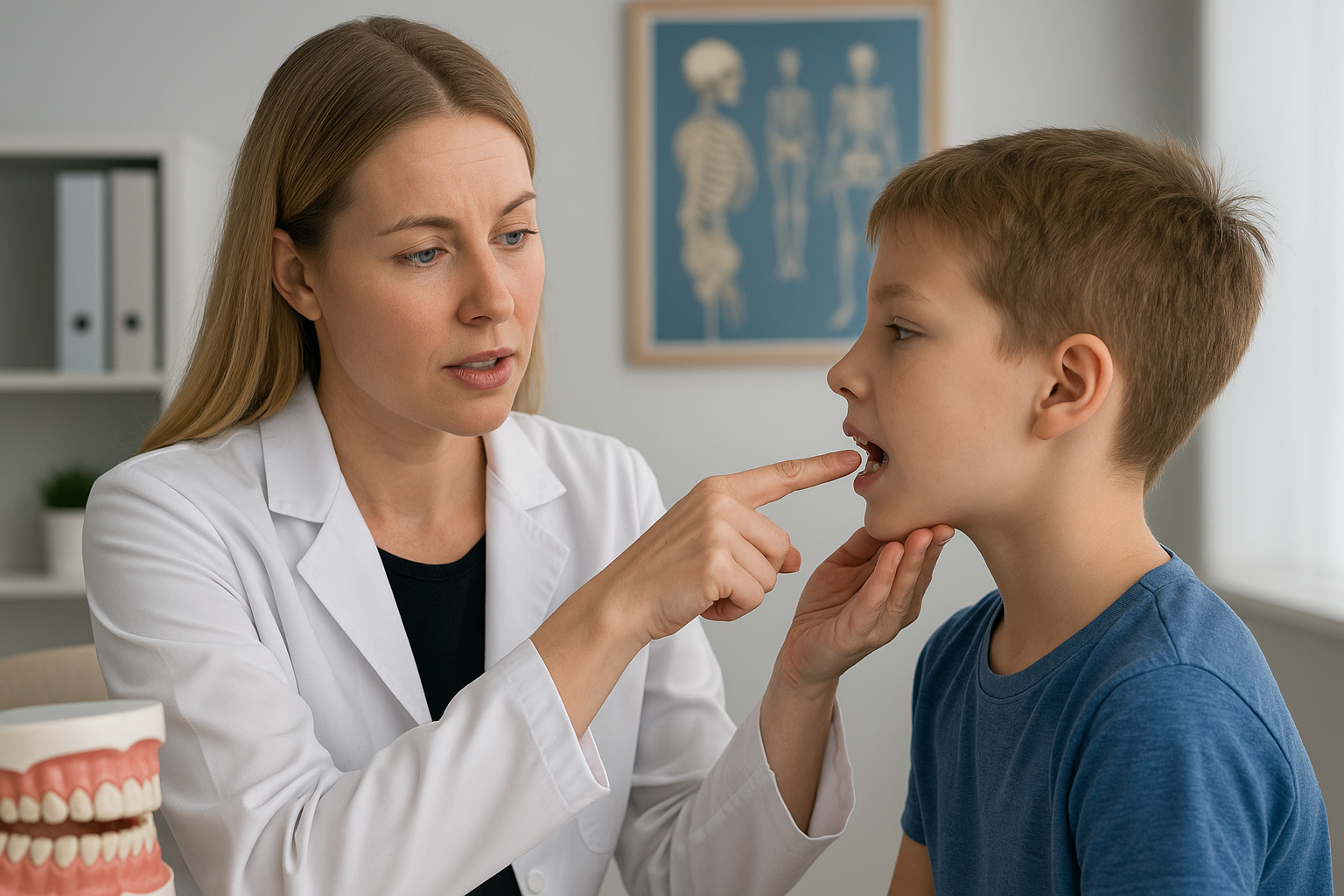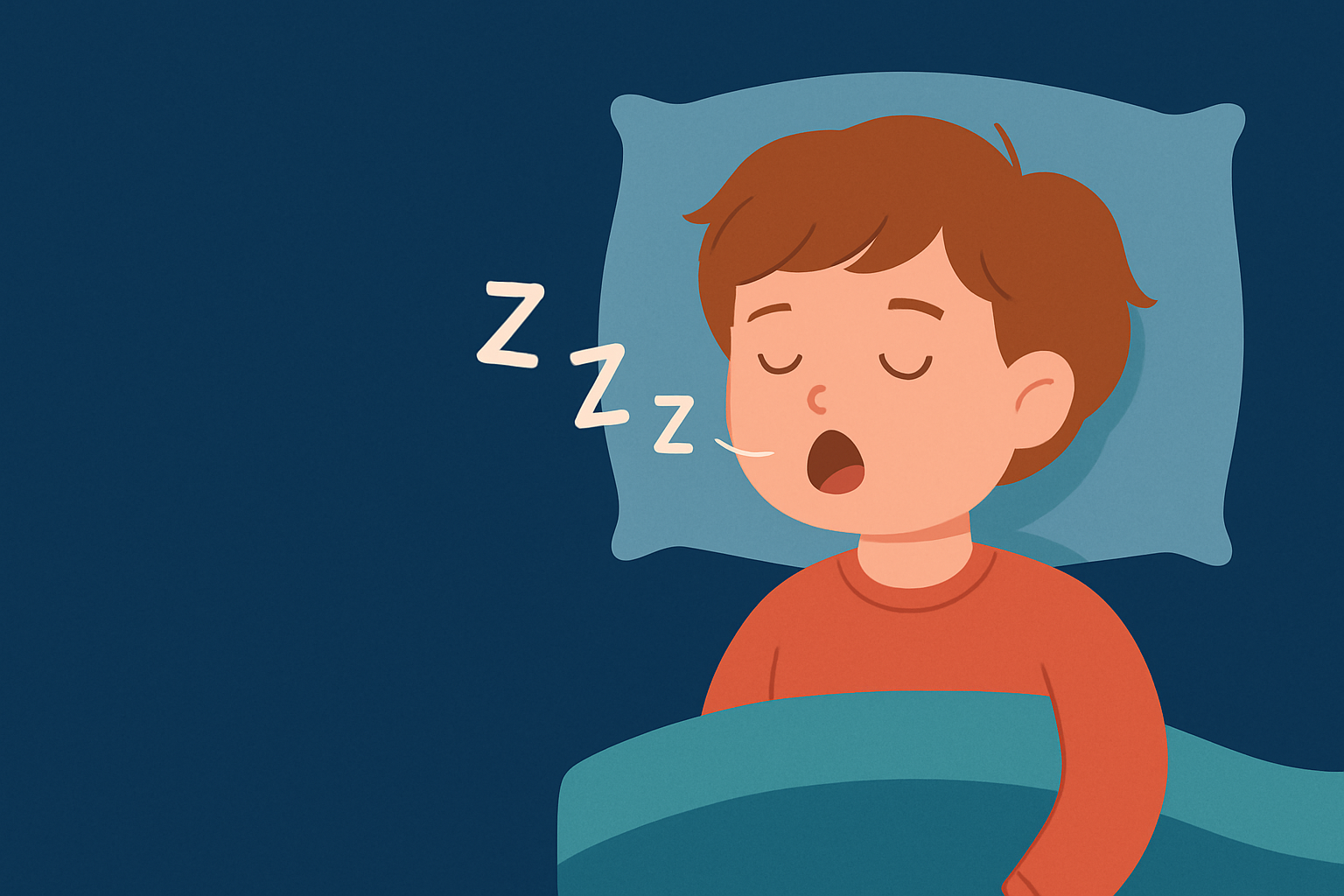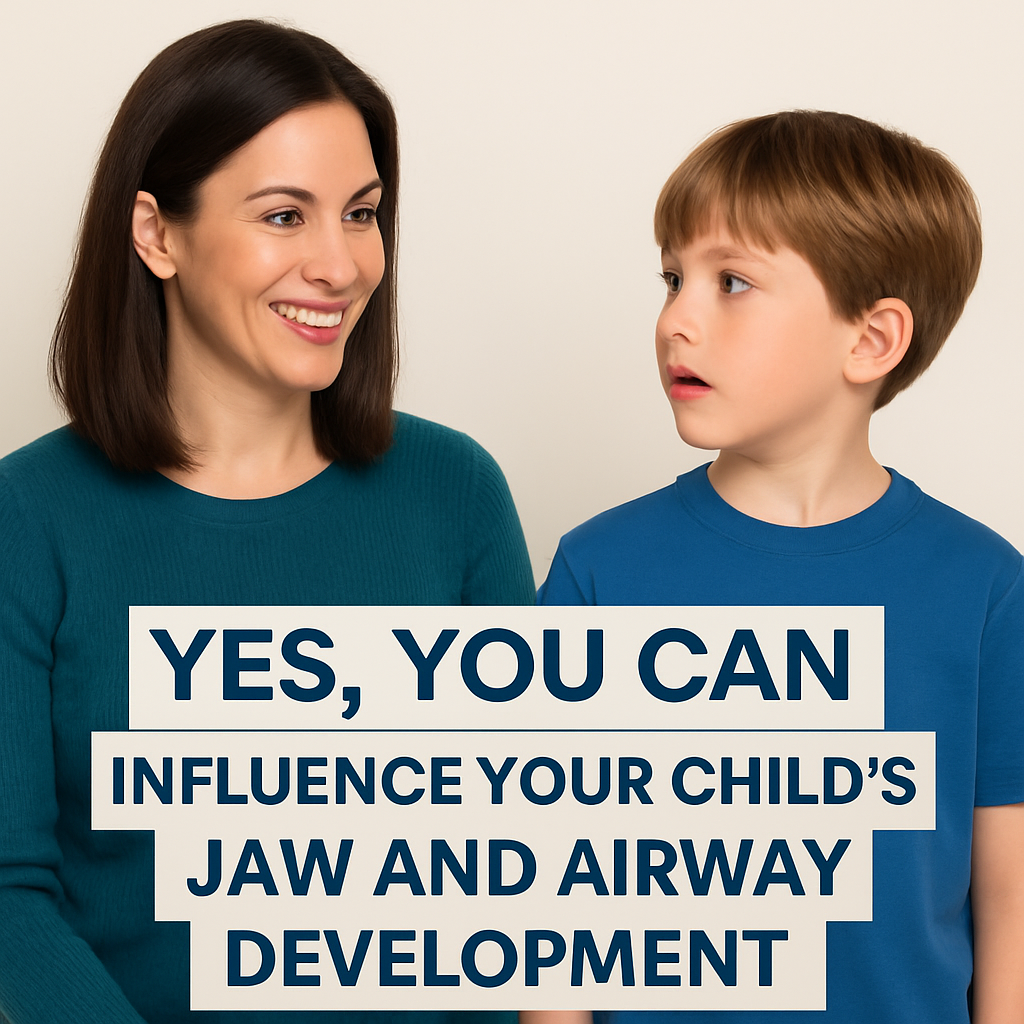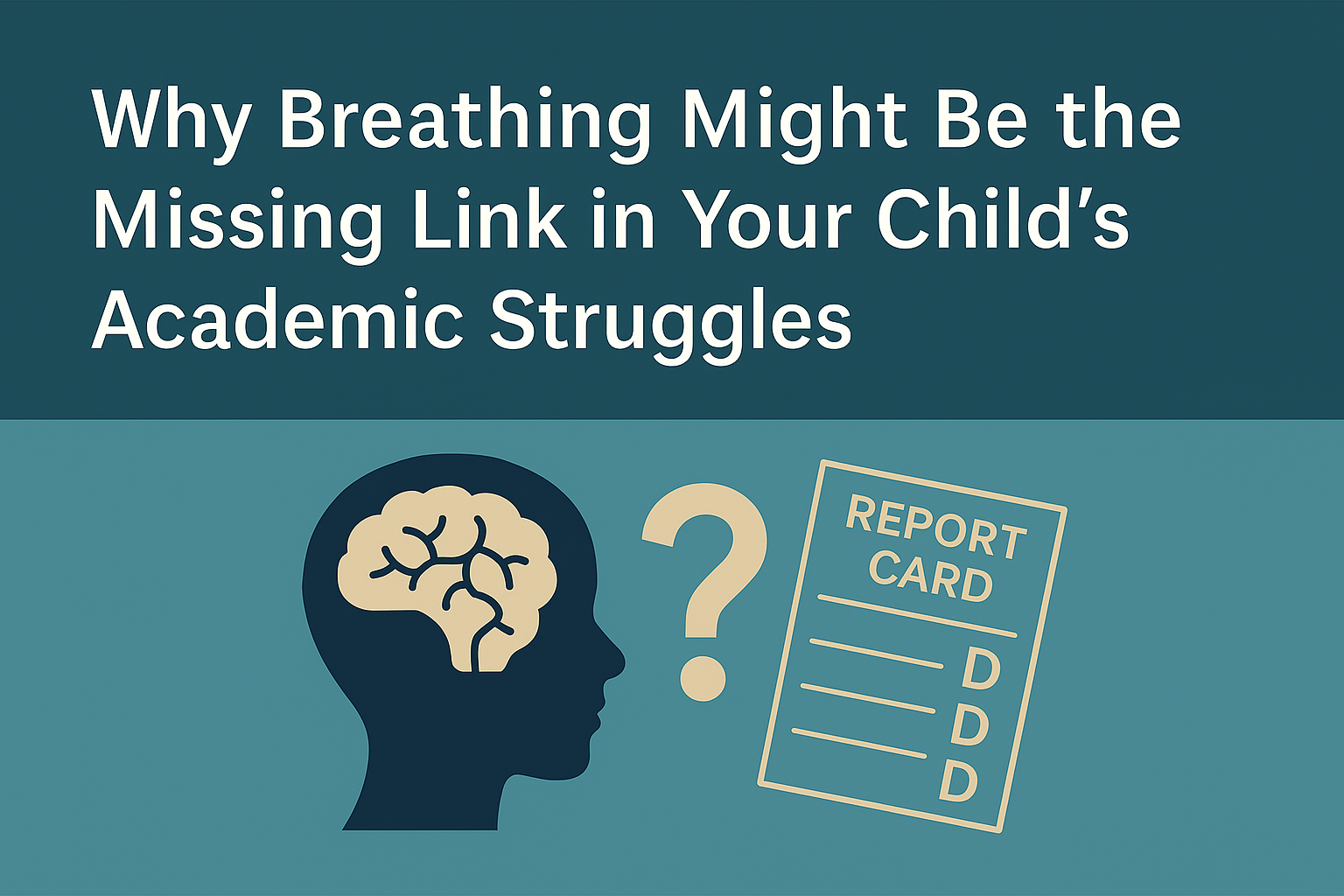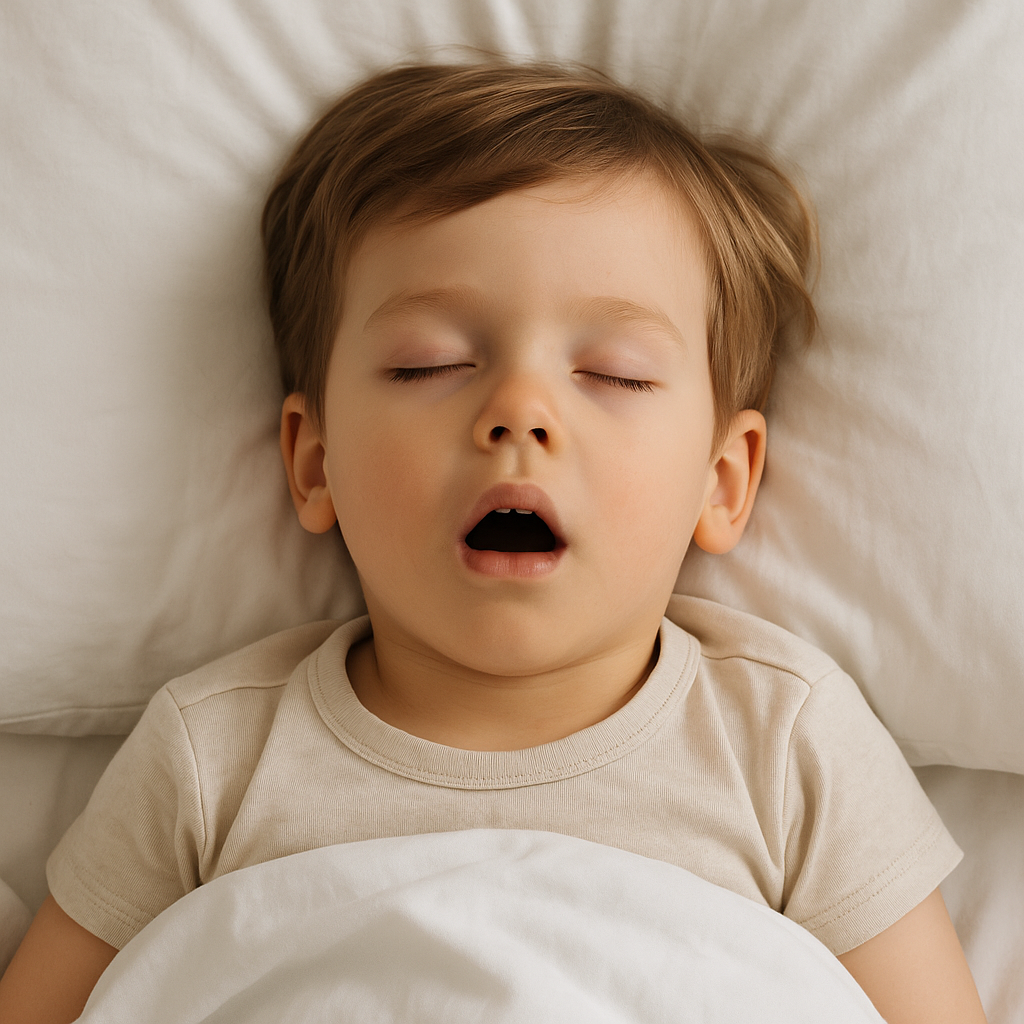Is It Really ADHD?
The Hidden Link Between Airway Health and Behavior in Children
Many parents feel overwhelmed when their child is diagnosed with attention or behavior challenges. In many cases, families are told their child may have Attention Deficit Hyperactivity Disorder. Medications are often prescribed for focus, sleep, and even anxiety.
However, there is one critical question that often goes unasked. How is your child breathing during the day and during sleep?
A Case That Changed Everything
A young boy recently visited our clinic. His parents were concerned about teeth grinding and extreme fatigue. His teachers were convinced he had Attention Deficit Hyperactivity Disorder. He had trouble staying focused and was always tired during the day.
When we examined him, we found something different. His airway was underdeveloped. His body was working overtime to get enough oxygen. Grinding his teeth at night was his body's attempt to open up his airway so he could breathe better.
Once we addressed his airway and helped him breathe more efficiently, the results were immediate. His energy levels improved. His sleep became restful. His behavior started to change. Within just one week, his family and teachers noticed a remarkable difference.
Why Breathing Matters More Than You Think
Breathing through the nose is essential for healthy brain development, restful sleep, and emotional regulation. When a child has an airway that is too narrow or blocked, they may mouth breathe, grind their teeth, or toss and turn during sleep. These are not just minor habits. These signs often point to a much deeper issue.
A child who cannot breathe well at night will not sleep deeply. Without proper rest, the brain struggles to focus. Emotions become harder to regulate. Over time, these children may show signs of hyperactivity, poor focus, or mood swings. These symptoms often mimic Attention Deficit Hyperactivity Disorder.
The Problem with Misdiagnosis
When airway health is not considered, children may be misdiagnosed and placed on medications that do not solve the real problem. While medications can help manage symptoms, they do not address the root cause if the issue is related to poor sleep or restricted breathing.
We believe every child deserves a full evaluation that includes a look at how they are breathing. Many children we see experience life-changing results once we begin to support proper jaw growth and airway development.
How Myofunctional Therapy Helps
Myofunctional therapy is a structured program that focuses on improving tongue posture, nasal breathing, and jaw development. At MyoWay, we use medical-grade tools and guided exercises to support natural growth and better breathing patterns. Our goal is to correct the root issue rather than mask the symptoms.
When children begin to breathe properly, they sleep better. Once they get quality rest, their behavior, focus, and overall health improve. In many cases, families see dramatic shifts in a matter of weeks.
What Parents Should Look For
If your child is experiencing any of the following symptoms, it may be time to ask about their airway health:
- Teeth grinding at night
- Snoring or restless sleep
- Chronic fatigue
- Hyperactivity or trouble focusing
- Mouth breathing
- Dark circles under the eyes
- Emotional outbursts
These signs are not just behavioral. They may be the body's way of signaling a deeper airway issue.
Conclusion
Before accepting a label or a prescription, ask the most important question. How is my child breathing?
Every child deserves the chance to thrive with proper rest, strong focus, and a body that works in harmony.
Myofunctional therapy may be the missing link for your child’s success and well-being.
Call to Action
We offer a free consultation to evaluate your child’s airway and discuss options for support. Early intervention can change the course of a child’s development.
Visit https://mychart.myoryx.com/patient/#/auth/onlineschedule?realm=myoway&univers=com to book a free consult today.
